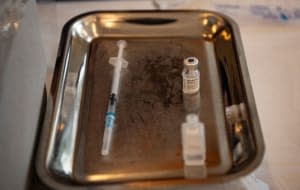Why perpetual COVID-19 vaccine boosting 'isn't an ideal option'

The prospect of COVID-19 booster shots have been looming since even before any vaccines were granted approval late last year. Most scientists believe boosters will be necessary at some point, though it's not clear when, but they also may want to make sure those bonus shots aren't needed all that often in the long run, Katherine Wu reported for The Atlantic on Wednesday.
"Boosting in perpetuity isn't an ideal option, if we can avoid it," Wu wrote. That's partly because side effects may become more intense with each passing shot, but it also may simply exhaust the human immune system. If people are vaccinated too frequently, then cells will eventually "stop learning efficiently from the material vaccines provide, and essentially 'burn out' from information overload," Wu reported, citing John Wherry, an immunologist at the University of Pennsylvania.
Ultimately, Wu wrote, "the world is better served when we're judicious with vaccines ... and inoculate as needed, no more, no less." Read more at The Atlantic.
You may also like
7 scathingly funny cartoons about Democrats' Joe Manchin problem
Senate Republicans block debate on voting rights legislation
Pelosi expected to soon announce whether she will create Jan. 6 select committee
